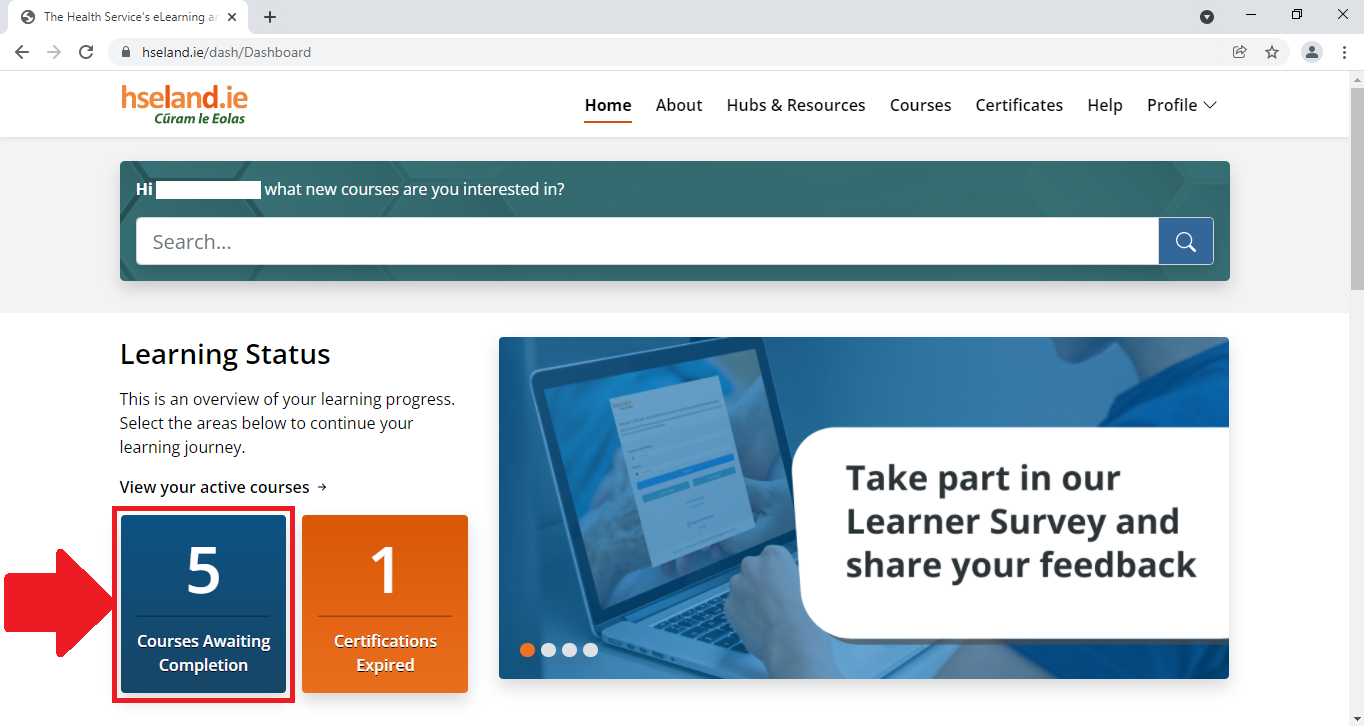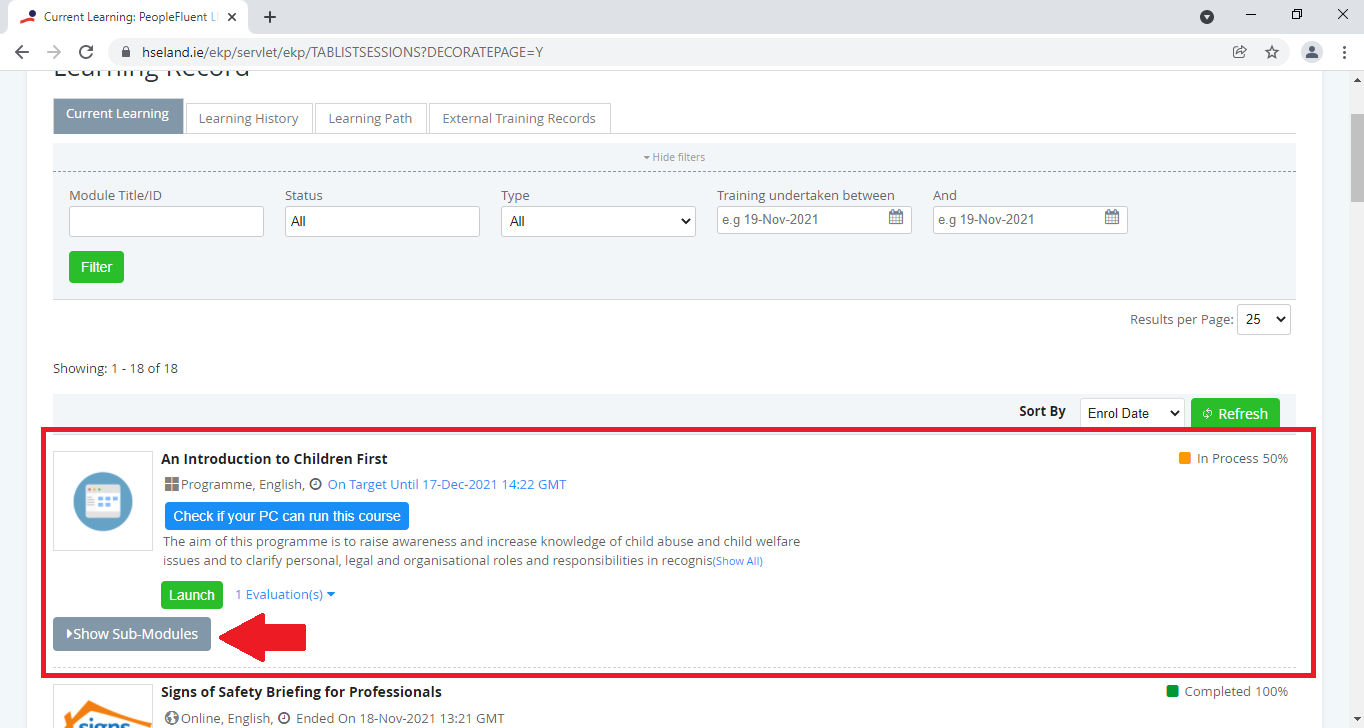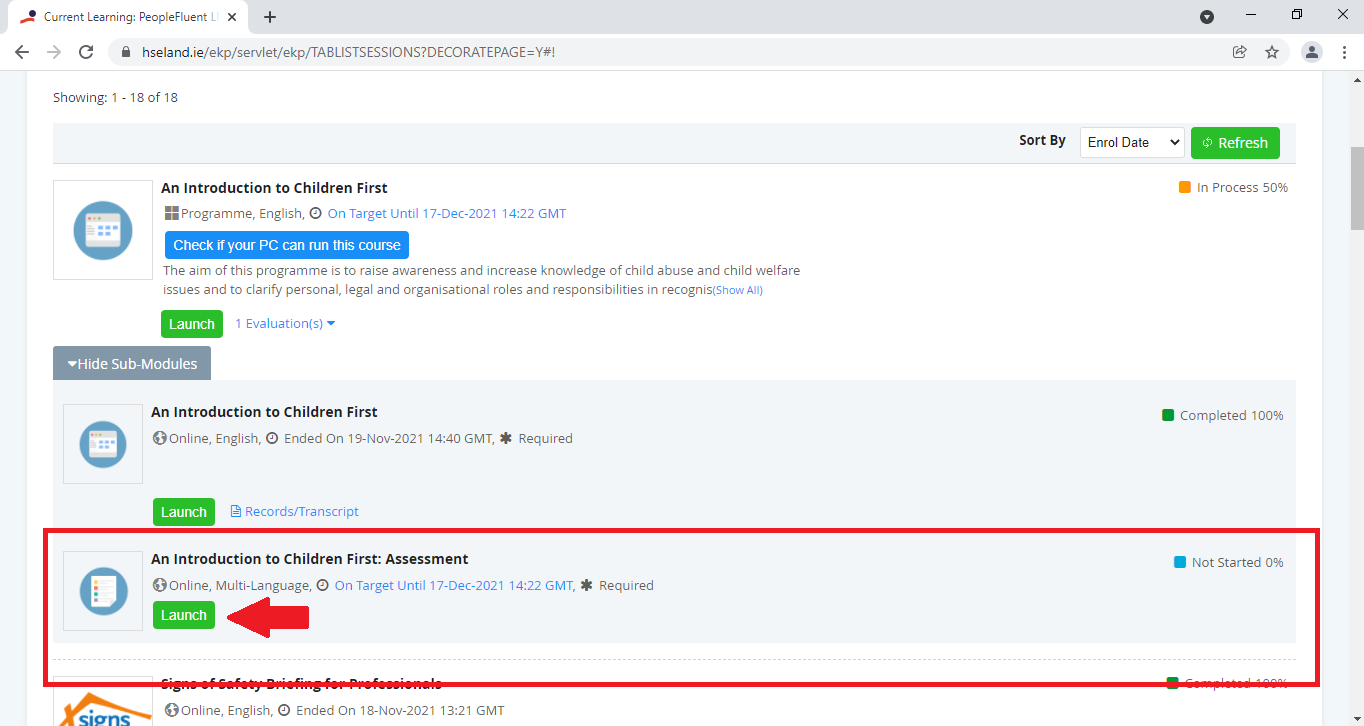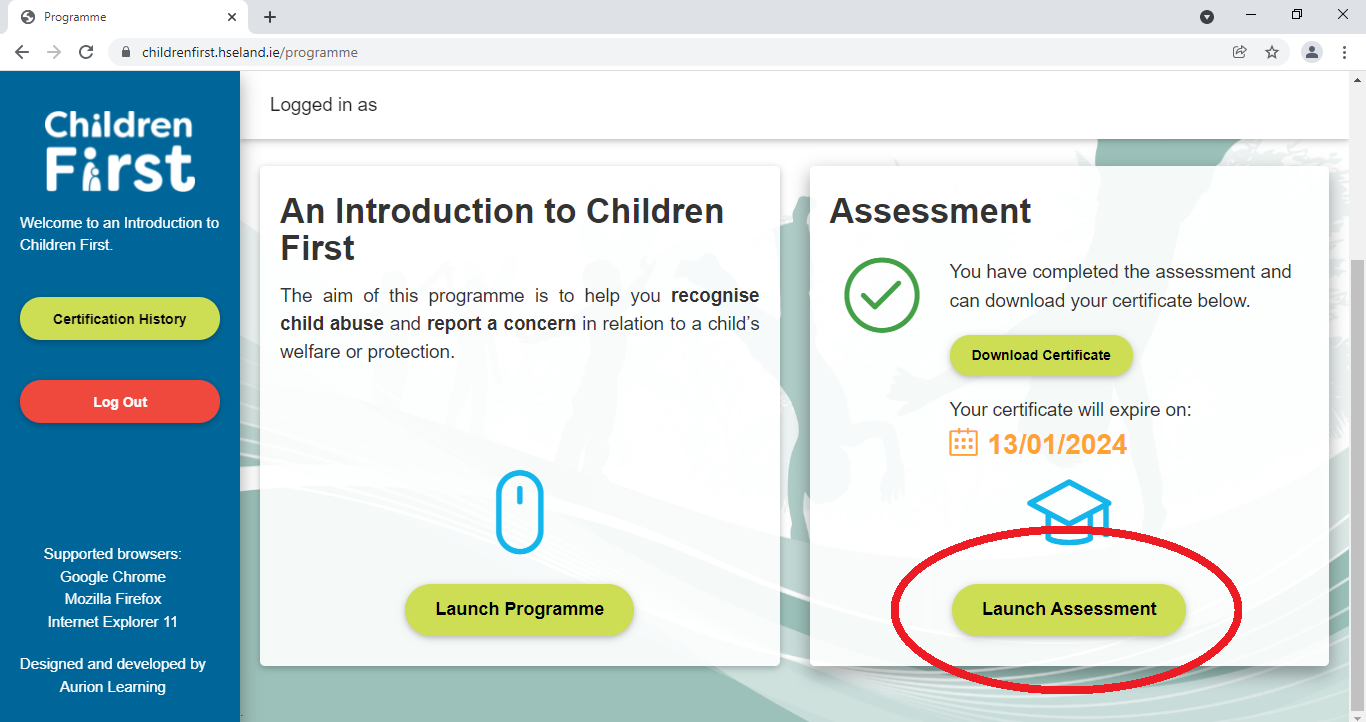There are a few different ways of accessing Children First e-learning training depending on who you are:
HSE staff, staff of HSE Funded Agencies and staff of private nursing homes and private hospitals access the HSE Children First training through www.hseland.ie.
If you accessed the training via this link, when you log on to HSeLanD you can launch the assessment by clicking on the ‘Go’ tab as indicated by the red circle in the image below:

Find the ‘An Introduction to Children First’ module that you have already started and click on ‘Show Sub Modules’ as indicated by the red arrow in the image below:

Find the ‘An Introduction to Children First: Assessment’ and click on ‘Launch’ as indicated by the red arrow in the image below:

The online programme needs to be completed in full before you can launch the assessment.
Staff of HSE Contracted Services and volunteers access the HSE Children First training through https://childrenfirst.hseland.ie/
If you completed the training via this link, when you log on you can launch the assessment by clicking on the ‘Launch Assessment’ icon as indicated by the red circle in the image below:

If you are none of the above categories of staff, you may have accessed Tusla's Children First training through https://childrenfirstuniversal.hseland.ie/
The HSE’s ‘An Introduction to Children First’ certificates are valid for three years. You will get an email from HSeLanD to the email address that you registered with when your certificate is about to expire advising you that you need to complete it again.
If you still have trouble accessing the assessment you can contact HSeLanD support on support@hseland.ie or via 01 9638272.